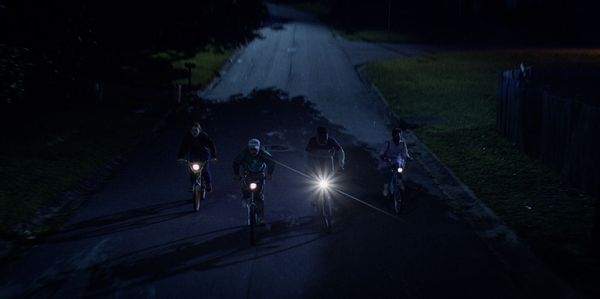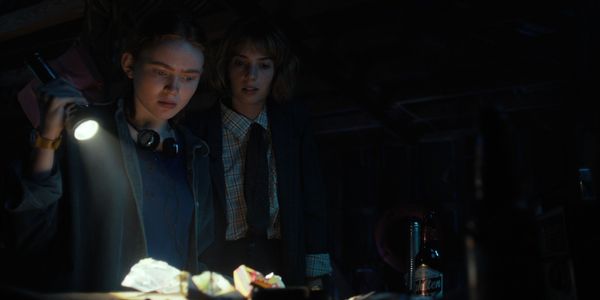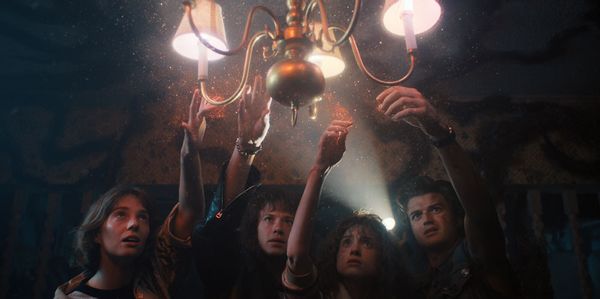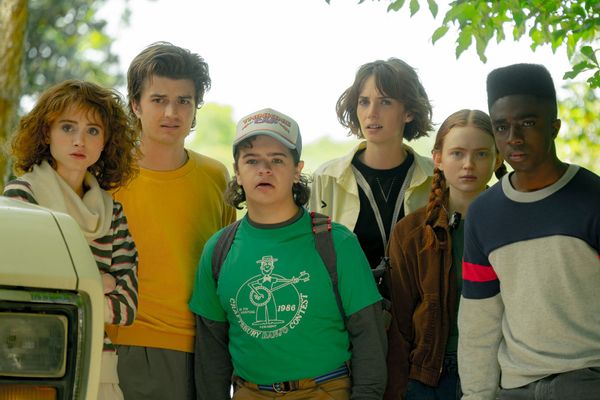
Anyone who writes or reads stories involving children knows a key component: get the parents out of the way. Growing up, my favorite stories were about orphans. From "Anne of Green Gables" to "Jane Eyre," children can't get in trouble, an essential part of fiction, if parents are there, solving everything. Or, if Google is there. Or, cell phones.
"Stranger Things," the beloved Netflix hit now wrapping up its fourth season, circumvents these issues easily by setting the stories of Hawkins, Indiana in the 1980s. And initially, the time period seemed to be an aspect that viewers adored most of all. The synthesizer soundtrack! The Starcourt Mall! Eleven's scrunchies! Will's bowl cut! Even the elements of the age that were less than pleasant (see: bowl cut) felt endearing, doted over in thinkpieces, replicated in fashion lines where everything old became new or at least briefly cool again — so endearing, some critics began to wonder if the story relied too heavily on nostalgia.
But longing for the past is not what makes "Stranger Things" such an emotional watch. It's longing to escape. It's not the '80s we're responding to, that era which also brought us Just Say No, the me generation and New Coke. It's the freedom kids like Mike, Dustin, Will, Lucas and Max have, freedom that just isn't possible today.
RELATED: From "Stranger Things" to TikTok: Kate Bush speaks to lonely kids. Here's why
"Stranger Things" is part of a long line of stories of kids doing stuff alone, preferably top secret dangerous stuff. From the crime-solving, adventure-seeking kids of "The Hardy Boys," "Nancy Drew," "Scooby-Doo," "Goonies" and "The Boxcar Children" to the intrepid teens and tweens of "Buffy the Vampire Slayer," "Locke & Key" and "Yellowjackets" – kids work better solo, no adults to harsh their buzz, discredit their theories, interrupt their breaking and entering, or make them go to bed.
Forget helmets. We didn't even have kickstands. We rode standing up down the hills, the playing cards in our wheel spokes slapping and the streamers on our handlebars flying.
The kids of "Stranger Things" live in a time and a world that is not ours. It's not exactly the '80s (at least, not technically perfect, historically speaking), but it's also a world far away from the lives most children live now. The Hawkins kids have bikes, which mean freedom, a kind of breezy effortlessness that has been missing a bit in recent seasons as beloved anti-hero Steve and now the lovable Argyle have real wheels and can drive everyone around.

The parental units of "Stranger Things" have, for the most part, no idea. About anything.
Like most kids of those eras, I spent much of my childhood blissfully unsupervised. I had to return home at dark; our neighborhood had no streetlights to flicker on and warn us. No one wore a watch, and without cell phones, there was no way for any parents to contact or find us. Who knew where we were, what we were doing (discovering a shed full of forgotten fireworks, going into a huge drainage tunnel looking for killer clowns).
This lines up with the parental units of "Stranger Things" who have, for the most part, no idea. About anything. Ted Wheeler, Nancy and Mike's dad, doesn't even realize his wife is basically having an affair, and neither of the Wheeler parents know escaped human experiment Eleven crashes in their basement. In this season, mom Joyce has gone to Russia, assuming everything is fine back at home. (It's not, it never is, and the kids aren't even there.)

Growing up, we were unreachable. The world was unknowable.
Without the internet, we didn't know a lot of things. There is darkness and sadness to not knowing — one of my best childhood friends, who is gay, said he would have been a lot happier a lot sooner if he had known he wasn't alone.
On the positive side, there is the excitement of mystery, of making it all up or figuring it all out yourself because you have to. Google would have ended multiple "Stranger Things" subplots in a heartbeat. Were the story to be set now, there would be countless TikToks of Vecna sightings, long YouTubes mansplaining the Mind Flayer or the kill count of the Upside Down.
Without the internet, we were bored. And boredom gave rise to its own kind of magic, magic we had to make ourselves. I became a writer in part because I was left alone, in part because of that boredom. I had to make my own world in childhood. So, I did.

It's not stranger danger in "Stranger Things." It's monster danger — and I feel like we can take them.
Our children are always only a text away. "Stranger Things" has fallen back a lot this season on walkie talkies and ham radios, something that was not a staple of my childhood nor, I'm guessing, many others — at least not good walkie talkies with that kind of distance. But for the most part, growing up we were unreachable. The world was unknowable. And that isn't the case for my Gen Z son, or likely even most Millennial children before him.
I was a latchkey kid. He is a child who, like many of his friends, received a smartphone earlier than I'd planned, at the start of a deadly pandemic that both separated him from school, relatives and a social life as well as provided him even more ways to be digitally connected: Discord, Zoom. Alone in our houses we stare at our screens while outside the world turns ever darker.
"Stranger Things" is scary and in its latest season, more gruesome and tonally dark than ever. But it's nothing compared to the world. The horror of the show is a respite. Sucked into the Upside Down, given the Cruciatus curse by Vecna, or attacked by demodogs, those still seem to pale in comparison to mass school shootings, to abuse, to children taken from their parents. It's not stranger danger in "Stranger Things." It's monster danger — and I feel like we can take them.

Want a daily wrap-up of all the news and commentary Salon has to offer? Subscribe to our morning newsletter, Crash Course.
It was hard for me to say goodbye to my freedom when I became a teenager with a summer job, then an adult with my own kid, jobs, rent — those tenants of adulthood you can't just abandon, you can't just run away from. It was hard for my son to say goodbye when we moved from a small, rural town to a major city: his bike was stolen our first week here; we don't know our neighbors and the radius where he can play is drastically small. And it's going to be hard to say goodbye to "Stranger Things" and the childhood freedom it invites us to remember.
Because I want my son to be able to get on that bike and ride into the sunset with his friends: no phone, no cares, only magic and the hope of a mystery to solve. I still remember that feeling. I wish I could ride off too.
More monster danger







